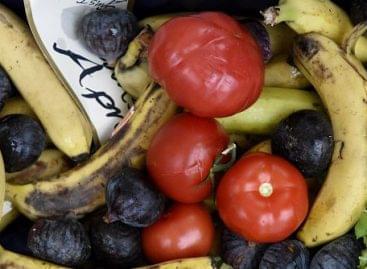Malaysia, Israel, Greece Produce Most Food Waste On A Per-Capita Basis, Study Finds
Malaysia, Israel and Greece produce the most food waste on a per capita basis, a new study by Bosch has found, using data from the UNEP Food Waste Index Report.
According to the study, Malaysia produces some 259.8 kilograms of food waste per capita on an annual basis (across household, retail and foodservice), making it the worst offender in terms of global food waste. Israel produces 178.4 kilograms of food waste per capital per annum, with Greece producing 174.6 kilograms per capita per annum.
At the other end of the spectrum, Slovenia, Russia and Austria are the most resourceful when it comes to food waste – in Slovenia, just 61 kilograms of food waste is produced per capita on an annual basis.
In Russia, the level of food waste stands at 74.74 kilograms per capita, while in Austria, it’s 76 kilograms.
In terms of the level of food waste recorded in other major European markets – in France, 134.88 kilograms of food waste is produced per capita, compared to 115.7 kilograms in Spain and 96.25 kilograms in Italy.
The United Kingdom produces 97.7 kilograms per capita, while Germany produces 101.54 kilograms.
ESM
Related news
Greece’s industrial production fell in August
🎧 Hallgasd a cikket: Lejátszás Szünet Folytatás Leállítás Nyelv: Auto…
Read more >Related news
(HU) METRO Gasztro Fesztivál a SIRHA Budapesten – Élmény, inspiráció és valódi megoldások a HoReCa-szakmának
🎧 Hallgasd a cikket: Lejátszás Szünet Folytatás Leállítás Nyelv: Auto…
Read more >








